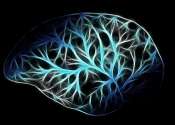Researchers discover how the brain learns from subconscious stimuli
Researchers uncovered for the first time what happens in animals' brains when they learn from subconscious, visual stimuli. In time, this knowledge can lead to new treatments for a number of conditions. The study, a collaboration ...
Mar 15, 2021
0
433









